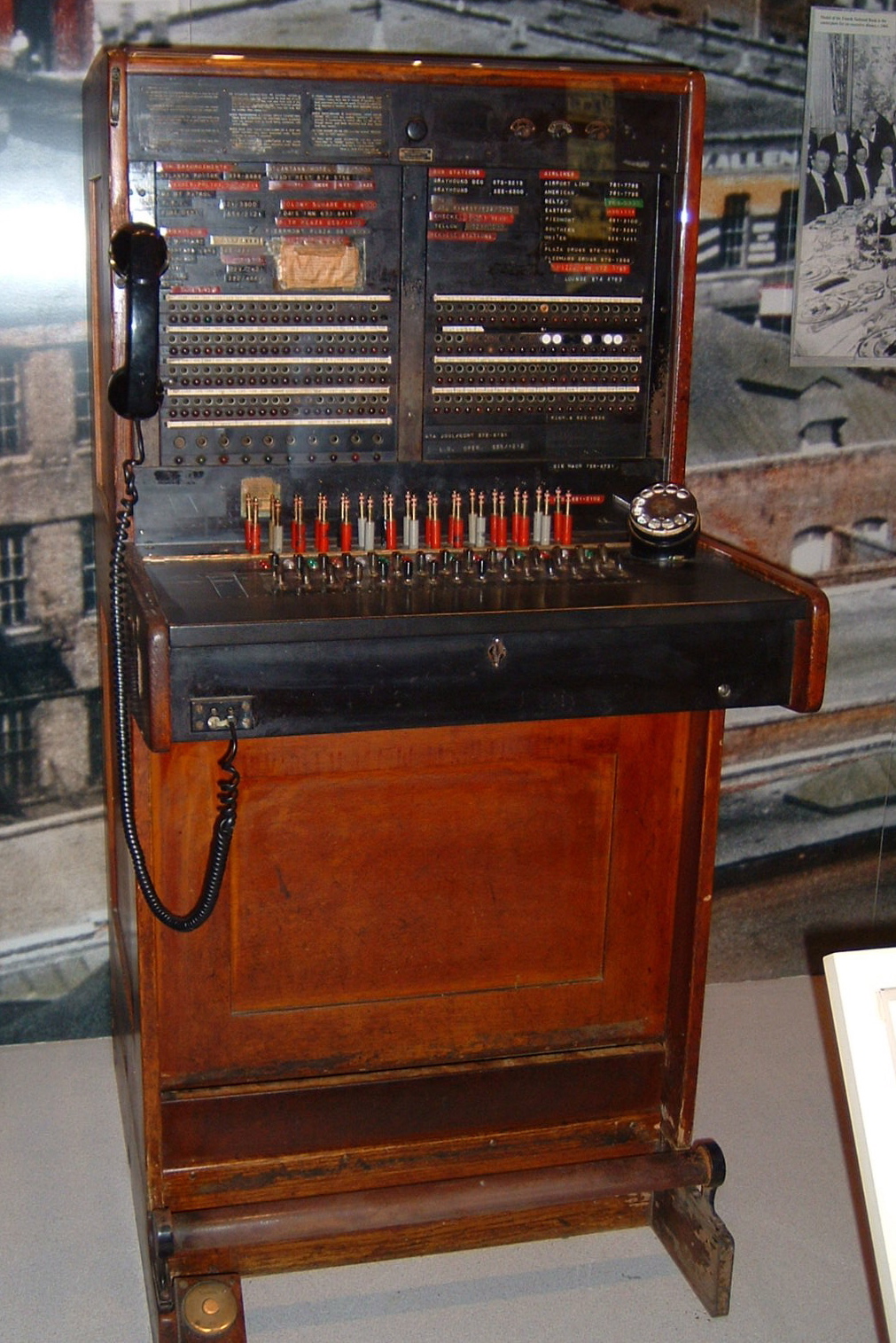I'd like to make a physical ("alt control") game about being a manual telephone switchboard operator in the early 20th century.
The gameplay takes the pattern of being a switchboard operator, and places it within the context of the "time management" genre of games. In front of you is a panel of input jacks, LEDs, and switches. Connecting a single phone call is a series of individually simple steps, but as you find yourself having to manage dozens of simultaneous calls, it quickly becomes quite chaotic. I'm also imagining potentially letting you eavesdrop on in-game conversations, opening the door to interesting narrative potential.
However, the interesting part is the game's interface. It will be a manual reconstruction of a physical telephone switchboard (at least in form, if not in function).
It consists of a physical board, at desk height, with two components: a vertical panel with 1/4" phone jacks and corresponding LEDs, and a desk panel with switches (to control listening and hanging up), and spring-loaded pairs of 1/4" cables that can be pulled up off the panel, and then snapped back into place when dropped. There will also be a connected set of headphones for audio output, and some sort of LCD or way to indicate the player's score.
A model like this is a good example of the visual aesthetic I'm aiming for:

As an educational exercise in implementation, this should be fairly straight-forward. The electronics are simple (I've prototyped the game before using an Arduino), the physical shape not too intimidating. But it leaves a lot of room for execution in fabricating an object that feels like a proper vintage piece of hardware.
There will obviously be a lot of work required for the electronics and for the work required to create the large main structure, but I imagine creating a facade that successfully imitates vintage 20th-century hardware will provide plenty of opportunity to use the various other forms of fabrication we'll be covering in the class.
Additionally, because I already have a fully-working digital prototype of the game, my focus can stay on the physical execution rather than the game design (which is fun, sure, but this isn't a class in game design).
As a work of art, it continues a series of works I've made that present interactive systems and games that have tangible interfaces based on obsolete or bygone technology as a means of helping people connect with aspects of the history of technology they are likely unfamiliar with. An example of this is What Hath God Wrought?, a game I made that uses actual vintage 19th century telegraph hardware:
As a game, the combination of the "time management" game genre (a style of games that dates back to 1983's Tapper, but persists largely in casual games such as Diner Dash) with a physical interface and no traditional graphical output is really interesting. I think the exploration of combining the frantic energy of a time management game with the visceral satisfaction of a tangible interface will yield a really fun experience.